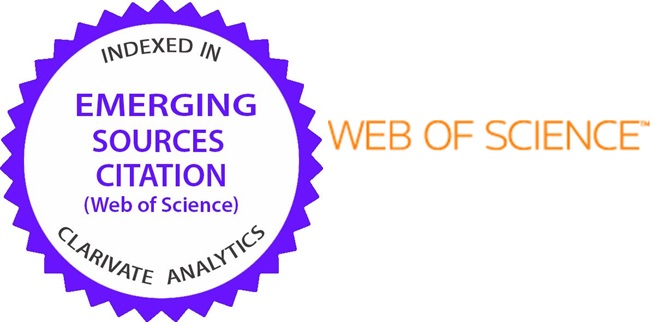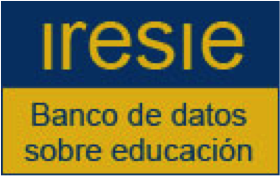Editorial Policy
Focus and Scope
Publicaciones is a scientific and cultural journal published annually by the Faculty of Education and Humanities of the Melilla Campus (University of Granada) with legal deposit GR-94-2001 and ISSN 1577-4147. It has been published on a regular basis since 1981, previously as the journal of the former Primary Teacher Training School of Melilla (ISSN: 0214-1515). In fact, it is the oldest of the journals published by the different departments of the University of Granada.
Publicaciones forms part of the following collection of documentary resources: ISOC; DICE; RESH (of the IEDCYT); CREDI (of the OEI); LATINDEX; DIALNET; REBIUN; SUMMAREV; ERCE; +MIAR; +Junta de Andalucía; DIGIBUG, DULCINEA and Google Scholar.
The articles published in Publicaciones by the Faculty of Education and Humanities of Melilla will be deposited in the Institutional Repository of the University of Granada, Digibug, and are therefore protected under Digibug’s Creative Commons Licence 3.0. The documents are uploaded to an open-access network.
Publicaciones accepts original, unpublished scientific contributions in any of the fields that make up the Teacher Training syllabus, whether theoretical or practical. The Journal publishes research projects, reviews, studies, interviews, reports, essays and educational experiences (innovation) in these fields.
Peer Review Process
The Journal uses the Double Blind Peer Review system in accordance with the latest edition of the Publication Manual of the APA (American Psychological Association).
GUIDELINES FOR ANALYSIS OF PAPERS:
- Relevance of the work to the specific field being considered.
- Significance of the problem analysed.
- New contributions or observations in a certain field.
- Originality of the research or the observations made.
- Quality of the literature review in the field being considered.
- Theoretical framework and literature review
- Adequacy of the justification of the theoretical framework.
- Specificity of the literature cited (as opposed to very general references).
- Adequacy of the definition of the problem and its relationship with previous studies.
- Relevance and extent of the references cited (without excessive citations).
- Correct use of references (in the text, in the footnotes and at the end).
- Methodology and results
- Consistency between the design and the problem studied.
- Adequacy of the samples used.
- Specification of the criteria applied for their selection and their characteristics.
- Adequacy of the techniques used to gather the data. Specification of the techniques used.
- Adaptation of the data analysis methods to the problem.
- Readability of the data (use of tables, images, figures...).
- Interpretations and conclusions
- Rigour, relevance and originality of the data analysis.
- Adequacy of the interpretation and discussion of data both consistent and inconsistent with the thesis.
- Clarity and relevance of the relationships between the affirmations and the data.
- Quality of the conclusions in relation to the scientific field being considered.
- Writing
- Suitability of the title in relation to the content.
- Relevance of the abstract.
- Consistency between the proposals explained in the introduction and the conclusions (these two sections should give a good overview of the contributions made by the study).
- Clear and easy to understand.
- Adaptation of the length to the Journal requirements and the topic addressed.
DRAFTING OF THE REPORT
Carry out an exacting analysis and review of original manuscripts, while at the same time offering guidelines for improvement whenever possible.
The review will be carried out by filling in the form on this website with:
- Recommendations regarding its publication. These may be:
- Publication without amendments.
- Publication with minor amendments.
- Only publish with substantial amendments.
- Rejection due to failure to meet the journal’s standards.
- Justification of the report. Written justification which may be sent directly to the authors specifying the reasons for the recommendation and without revealing the identity of the person responsible and/or reviewer.
It should refer to the above guidelines and any other criteria considered relevant, offering suggestions or references for its improvement (where applicable).
The report must be sent to the author for their evaluation within one month (it is important to comply with this deadline).
Open Access Policy
This is an Open Access journal, which means that all content is freely available without charge to the user or his/her institution. Users are allowed to read, download, copy, distribute, print, search, or link to the full texts of the articles in this Journal without asking prior permission from the publisher or the author. This is in accordance with the BOAIdefinition of open access. Works published may be reused upon the terms established in the licence Creative Commons 4.0. (CC BY-NC-SA).
FEES FOR DELIVERY AND PUBLICATION OF ARTICLES
This Journal does not charge any fees for submission or publication of its articles.
Journal History
Publicaciones (University of Granada), with legal deposit GR-94-2001 and ISSN 1577-4147, is an annual scientific and cultural journal. It has been published on a regular basis since 1981, previously as the journal of the former Primary Teacher Training School of Melilla (ISSN: 0214-1515), making it the oldest of the journals published by the different departments of the University of Granada. Since that time, initially on a six-monthly basis and subsequently every year, more than 40 issues of the Journal have been published. It publishes quality scientific research in the field of education and teacher training in all fields and at all educational levels.










